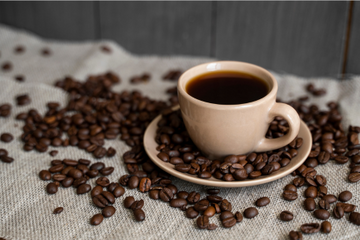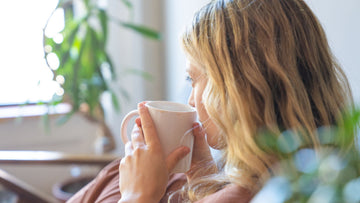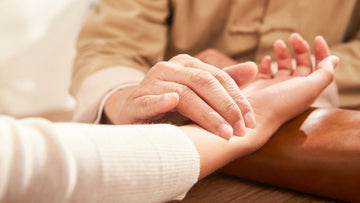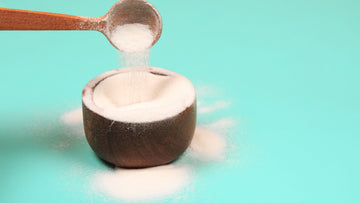
Chemotherapy is a widely utilised treatment for cancer, and its effects on patients can be rather challenging. Alongside the physical and emotional aspects, there are dietary considerations that come into play. One common piece of advice given to cancer patients undergoing chemotherapy is to avoid or restrict their consumption of coffee. In this article, we shall explore the reasons behind this recommendation and the potential impact of coffee on chemotherapy.
The Potential Interactions
1. Digestive Issues: Chemotherapy can often lead to various gastrointestinal side effects, including nausea, vomiting, and diarrhoea. Coffee is acidic and can be irritating to the stomach lining, potentially exacerbating these symptoms. Caffeine, in particular, is known to increase gastric acid production, which may further contribute to digestive discomfort.
2. Dehydration: Chemotherapy can cause dehydration due to various factors, such as vomiting and diarrhoea. Coffee is a diuretic, meaning it increases urine production, potentially exacerbating fluid loss and dehydration. Maintaining proper hydration is crucial for chemotherapy patients to help manage side effects and maintain overall health.
3. Interference with Medications: Some compounds in coffee may interact with specific chemotherapy drugs. While the exact mechanisms and impacts of these interactions can vary, healthcare providers may recommend limiting coffee consumption to avoid potential complications.
4. Impact on Taste and Smell: Chemotherapy often affects a patient's sense of taste and smell, which can lead to a metallic or unpleasant taste in the mouth. Coffee's strong and sometimes bitter flavour may not be well-tolerated by individuals experiencing these side effects, making it less enjoyable or even unpalatable.
5. Energy Levels: While coffee is a source of caffeine, a stimulant that can provide a temporary energy boost, it can also lead to crashes in energy levels. Chemotherapy patients might find that the rollercoaster effect of caffeine exacerbates their already fluctuating energy levels.
The Importance of Hydration
As mentioned earlier, one of the primary reasons for caution regarding coffee consumption during chemotherapy is the potential for dehydration. Dehydration can worsen side effects, such as fatigue, muscle cramps, and kidney issues. To counteract this, healthcare providers often recommend drinking plenty of water and other non-caffeinated, non-acidic beverages to stay well-hydrated.
Alternative Options
For many people, the ritual of having a warm beverage in the morning or during the day is important for maintaining a sense of normalcy. In place of coffee, chemotherapy patients can explore various alternatives, such as:
1. Herbal Teas: Herbal teas, such as ginger or peppermint, can be soothing for the stomach and help alleviate nausea. They are non-caffeinated and can be a comforting option.
2. Herbal coffee: Not Coffee is a caffeine-free beverage option that mimics the taste and experience of coffee without the stimulating effects of caffeine. It is generally less irritating to the stomach and can be a more suitable option for those who love the taste of coffee.
3. Water and Infused Water: Staying well-hydrated is crucial, and adding slices of fruit, cucumber, or herbs to water can make it more appealing.
Conclusion
While coffee is a beloved beverage for many, its interaction with chemotherapy and the potential for exacerbating treatment-related side effects make it advisable for patients to exercise caution or explore alternatives during this time. Ultimately, the guidance regarding coffee consumption should be discussed with a healthcare provider, as individual responses to treatment and dietary choices can vary. Prioritising hydration and choosing gentler options can help patients better manage the challenges of chemotherapy while maintaining their overall well-being.
The Potential Interactions
1. Digestive Issues: Chemotherapy can often lead to various gastrointestinal side effects, including nausea, vomiting, and diarrhoea. Coffee is acidic and can be irritating to the stomach lining, potentially exacerbating these symptoms. Caffeine, in particular, is known to increase gastric acid production, which may further contribute to digestive discomfort.
2. Dehydration: Chemotherapy can cause dehydration due to various factors, such as vomiting and diarrhoea. Coffee is a diuretic, meaning it increases urine production, potentially exacerbating fluid loss and dehydration. Maintaining proper hydration is crucial for chemotherapy patients to help manage side effects and maintain overall health.
3. Interference with Medications: Some compounds in coffee may interact with specific chemotherapy drugs. While the exact mechanisms and impacts of these interactions can vary, healthcare providers may recommend limiting coffee consumption to avoid potential complications.
4. Impact on Taste and Smell: Chemotherapy often affects a patient's sense of taste and smell, which can lead to a metallic or unpleasant taste in the mouth. Coffee's strong and sometimes bitter flavour may not be well-tolerated by individuals experiencing these side effects, making it less enjoyable or even unpalatable.
5. Energy Levels: While coffee is a source of caffeine, a stimulant that can provide a temporary energy boost, it can also lead to crashes in energy levels. Chemotherapy patients might find that the rollercoaster effect of caffeine exacerbates their already fluctuating energy levels.
The Importance of Hydration
As mentioned earlier, one of the primary reasons for caution regarding coffee consumption during chemotherapy is the potential for dehydration. Dehydration can worsen side effects, such as fatigue, muscle cramps, and kidney issues. To counteract this, healthcare providers often recommend drinking plenty of water and other non-caffeinated, non-acidic beverages to stay well-hydrated.
Alternative Options
For many people, the ritual of having a warm beverage in the morning or during the day is important for maintaining a sense of normalcy. In place of coffee, chemotherapy patients can explore various alternatives, such as:
1. Herbal Teas: Herbal teas, such as ginger or peppermint, can be soothing for the stomach and help alleviate nausea. They are non-caffeinated and can be a comforting option.
2. Herbal coffee: Not Coffee is a caffeine-free beverage option that mimics the taste and experience of coffee without the stimulating effects of caffeine. It is generally less irritating to the stomach and can be a more suitable option for those who love the taste of coffee.
3. Water and Infused Water: Staying well-hydrated is crucial, and adding slices of fruit, cucumber, or herbs to water can make it more appealing.
Conclusion
While coffee is a beloved beverage for many, its interaction with chemotherapy and the potential for exacerbating treatment-related side effects make it advisable for patients to exercise caution or explore alternatives during this time. Ultimately, the guidance regarding coffee consumption should be discussed with a healthcare provider, as individual responses to treatment and dietary choices can vary. Prioritising hydration and choosing gentler options can help patients better manage the challenges of chemotherapy while maintaining their overall well-being.





